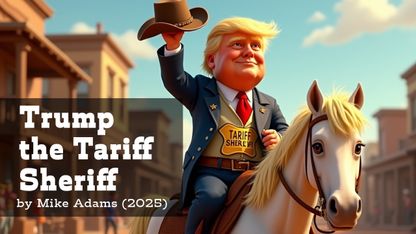
Reuters reported on March 23 that Riyadh and Damascus have agreed to reopen their embassies after cutting diplomatic ties more than 10 years ago. Several Western and Arab states severed ties with Syria when the country's civil war broke out in 2011. A Syrian source told the outlet that the reopening of both embassies is scheduled after the Muslim holiday Eid al-Fitr.
Another source, a Gulf diplomat, confirmed the move – adding that it was the result of a senior Syrian intelligence official's efforts in the kingdom. Saudi state television later seconded that talks were ongoing between the respective foreign ministries of the kingdom and Syria, citing an official from the Saudi Ministry of Foreign Affairs (MOFA).
The warming of ties between Syria and Saudi Arabia was a stark contrast from 2011. The U.S. and several of its Middle Eastern allies – including Saudi Arabia and Qatar – backed some of the Syrian rebels. Meanwhile, Iran and Russia backed the forces of Syrian President Bashar al-Assad – who managed to stomp out the insurgency across most of the country.
Washington has opposed moves by countries in the Middle East to normalize ties with Assad, citing his government's brutality during the conflict. A spokesperson for the U.S. Department of State said the country's stance on normalization "remains unchanged," and encouraged other nations not to resume ties with Damascus.
The MOFA, the Saudi government's communication office and the Syrian government did not respond to requests for comment.
Prior to Saudi Arabia reestablishing ties with Syria, the United Arab Emirates spearheaded efforts to do so. It reopened its embassy in Damascus in 2018, arguing that Arab countries needed more of a presence in resolving the Syrian conflict. Emirati officials recently welcomed Assad and his wife in the capital Abu Dhabi.
Riyadh, Tehran also reestablish ties – thanks to Beijing
Days before the announcement of renewed ties between Syria and Saudi Arabia, the kingdom reestablished its ties with the Islamic Republic of Iran – via a deal brokered by China. (Related: Saudi Arabia could invest in Iran "very quickly" following China-brokered deal to reestablish diplomatic relations.)
According to an earlier Reuters report, top security officials from Riyadh and Tehran had engaged in four days of talks in the Chinese capital Beijing before both parties agreed to resume ties. The March 11 announcement followed years of hostility that had threatened stability and security in the Gulf and helped fuel conflicts in the Middle East from Yemen to Syria.
Despite Saudi Arabia and Iran both being Muslim, they have been at odds with each other. Saudis belong to the majority Sunni denomination, which believes that Abu Bakr – the Prophet Muhammad's closest companion – should be the latter's successor. Meanwhile, Iranians belong to the minority Shia denomination that believes Ali – the Prophet Muhammad's son-in-law – should lead Islam upon his passing.
The March 11 meeting in Beijing appears to have ironed out this conflict between the two nations adhering to separate denominations of Islam. A joint statement by Iran, Saudi Arabia and China said "the agreement includes their affirmation of the respect for the sovereignty of states and the non-interference in internal affairs." Iranian Supreme National Security Council Secretary Ali Shamkhani and Saudi National Security Adviser Musaed bin Mohammed al-Aiban signed the agreement.
Wang Yi, director of the Chinese Central Foreign Affairs Commission's General Office, described the deal between Tehran and Riyadh as a victory for dialogue and peace. He added that Beijing would continue to play a constructive role in addressing tough global issues.
"Further regional instability is not in Saudi or Iranian interest at the moment," said American political scientist Kristian Coates Ulrichsen. "And for the Chinese to have addressed this at a time when the U.S. stance toward Iran is becoming more hawkish sends a powerful signal in itself."
Watch "Worldview Report" host Brannon Howse explains why Iran and Saudi Arabia's partnership spells trouble for the United States.
This video is from the Worldview Report channel on Brighteon.com.
More related stories:
Saudi Arabia, China initiating plan to create petroyuan and bring an end to the petrodollar.
The enemy of my enemy is my friend: Russia, Iran forge alliance amid Western sanctions.
Saudi Arabia fortifies relations with Russia, thumbing its nose to the West.
Iran finally admits it is supplying Russia with combat drones.
Sources include:
Please contact us for more information.


















